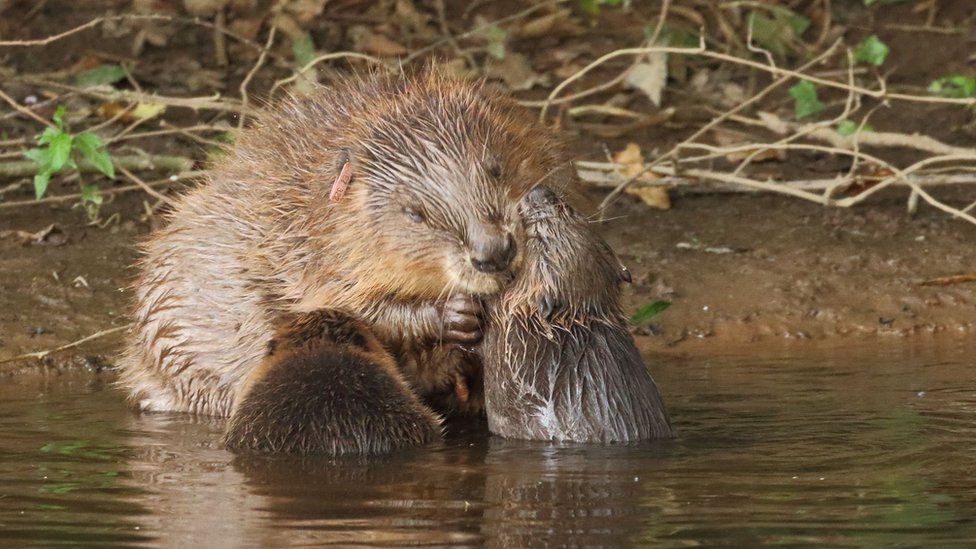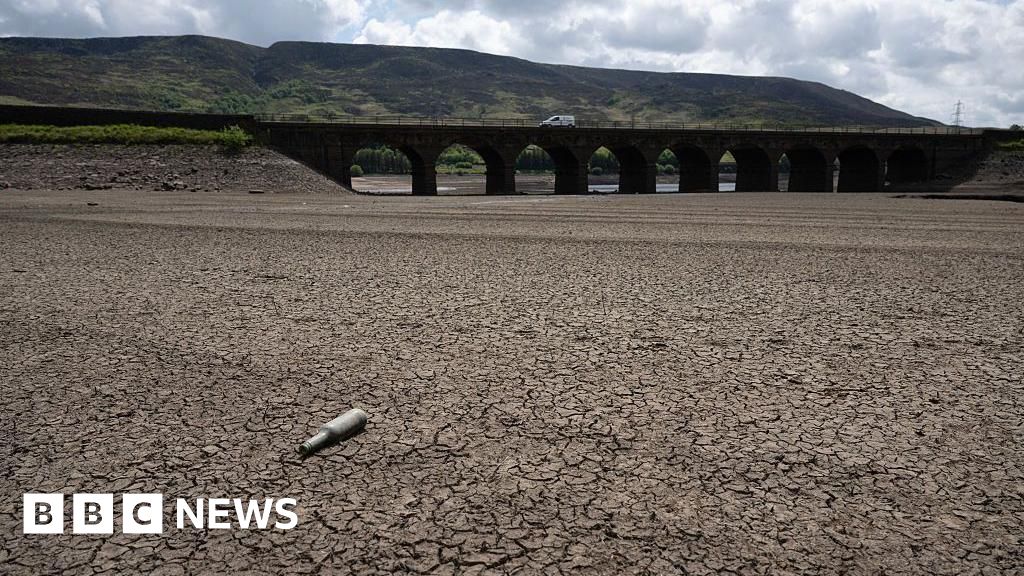ARTICLE AD BOX
By Ella Hambly
BBC News Climate and Science reporter
 Image source, Mike Symes
Image source, Mike Symes
Beaver female with kits
Eurasian beavers have been recognised as a European protected species in England, making it illegal to capture, kill, injure or disturb them.
The move limits measures previously available to "control" beavers.
Landowners will not be able to damage a burrow or dam without a license from Natural England, for example.
Wildlife charities praised the move, saying beavers' dams helped the environment, keeping water clean and preventing flooding and drought.
"Beavers bring such an astonishing array of ecosystem services to our landscape, this truly is an historic day for the species in England," said Sandra King, chief executive of Beaver Trust.
The National Farmers' Union had previously objected to beavers becoming a protected species, saying their dams could pose a flooding risk to agricultural land.
"Many farmers will be rightly concerned about the potential impact of beavers on their land so will be asking for adequate tools and support to manage a species that could impact their business and on food production," it said in response to the law change.
These protections apply to species which are endangered, vulnerable, rare or otherwise at risk across Europe. Other European Protected Species present in the UK include bats, the Large Blue Butterfly, the Sand Lizard and the Natterjack Toad.
Eurasian beavers, which were once widespread but hunted to extinction 400 years ago, have been reintroduced at multiple sites across Britain.
Image source, Getty Images
In 2009, wild beavers were released in Scotland as part of the Scottish Beaver Trial, which was the first authorised mammal reintroduction project in the UK. Beavers were later given a protected status in Scotland in 2019.
The Wildlife Trusts, which have overseen the release of beavers across the UK, welcomed the news but called for more information on how beaver reintroductions will be facilitated.
Peter Burgess, director of Nature Recovery at Devon Wildlife Trust, said: "This gives clarity where beavers are currently present in our river catchments - which is a tiny fraction of our rivers and wetlands in the country. However, there is no strategy in place to guide future beaver reintroductions which have gained overwhelming support nationwide."
The NFU said it would monitor how existing beaver populations, reintroductions, and future policy developments work in practice.

 2 years ago
64
2 years ago
64








 English (US) ·
English (US) ·